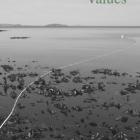Casada da Rocha, Antonio. “The Value of Health in the Writings of H.D. Thoreau.” Environmental Values 18, no. 2 (2009): 201–15. doi: 10.3197/096327109X438062. Republished by the Environment & Society Portal, Multimedia Library. http://www.environmentandsociety.org/node/7500.
By means of a survey of Thoreau’s writings, this article analyses his thoughts on health, emphasising some features that fit well with contemporary debates in the philosophy of medicine. Thoreau understands health as an environmental value, one that cannot be achieved without a personal relation to nature, but he does not provide a static definition of health within a fixed hierarchy of values. Thus he avoids a certain degree of essentialism that, when imposed on his work, makes it seem more utopian and anti-scientific than it really is. The meaning of health for Thoreau is often contradictory and hard to disambiguate, and his context was different in many respects to ours, but his ideas on this topic still serve to criticise some of modern medicine’s views on health and disease, and to steer it towards a more environmentally-informed approach to these phenomena.
— Text from The White Horse Press website
All rights reserved. © 2009 The White Horse Press


